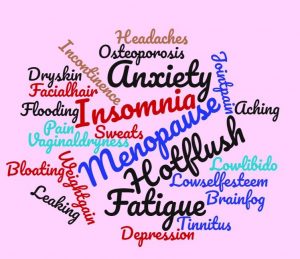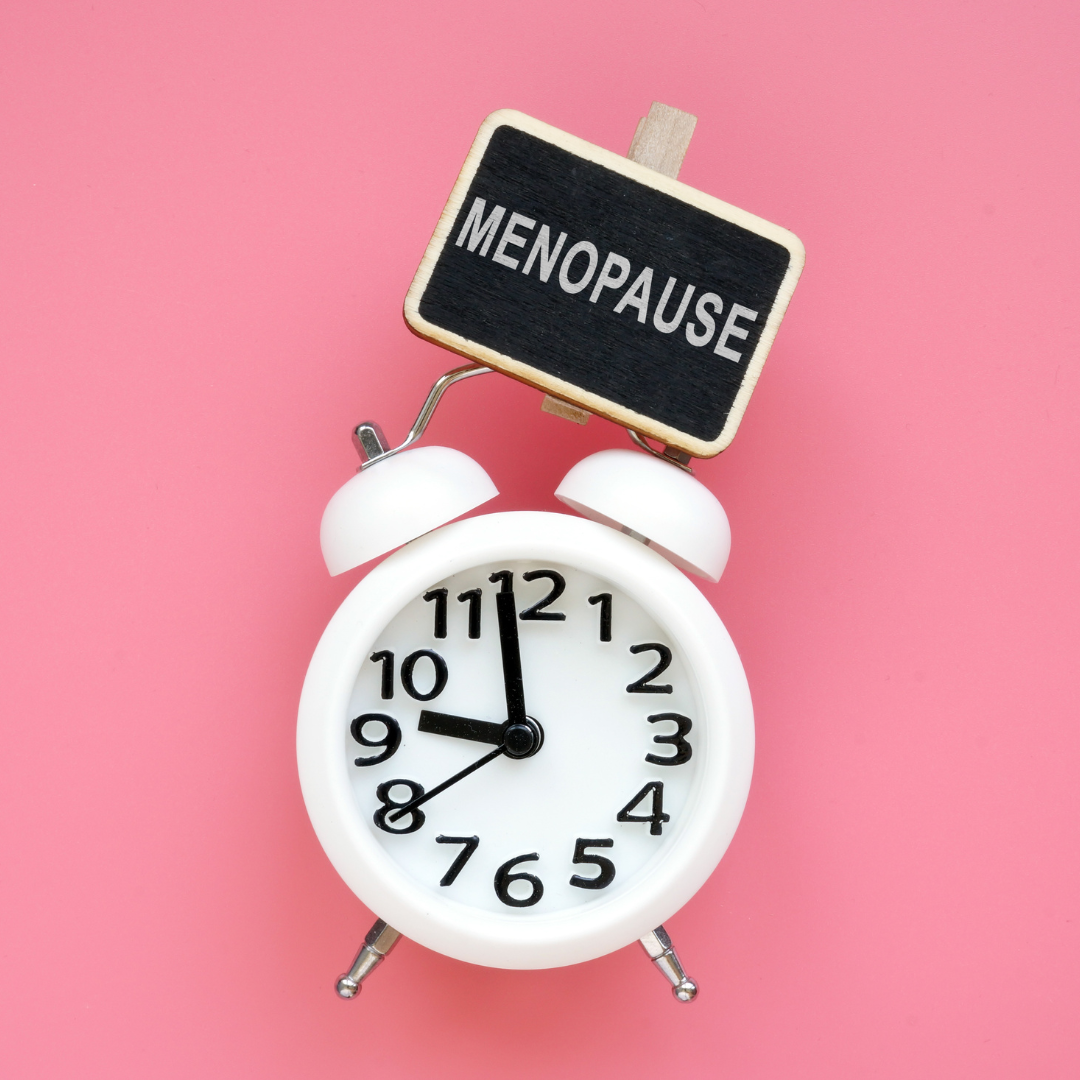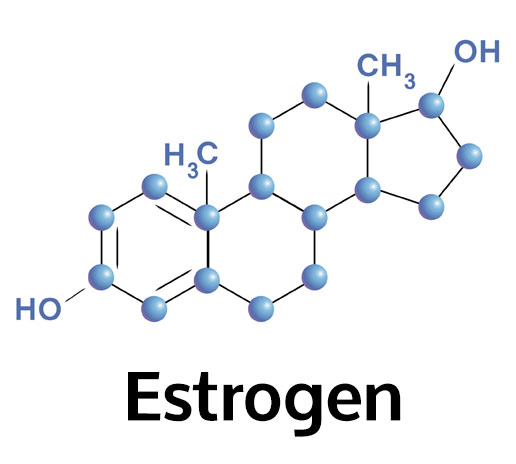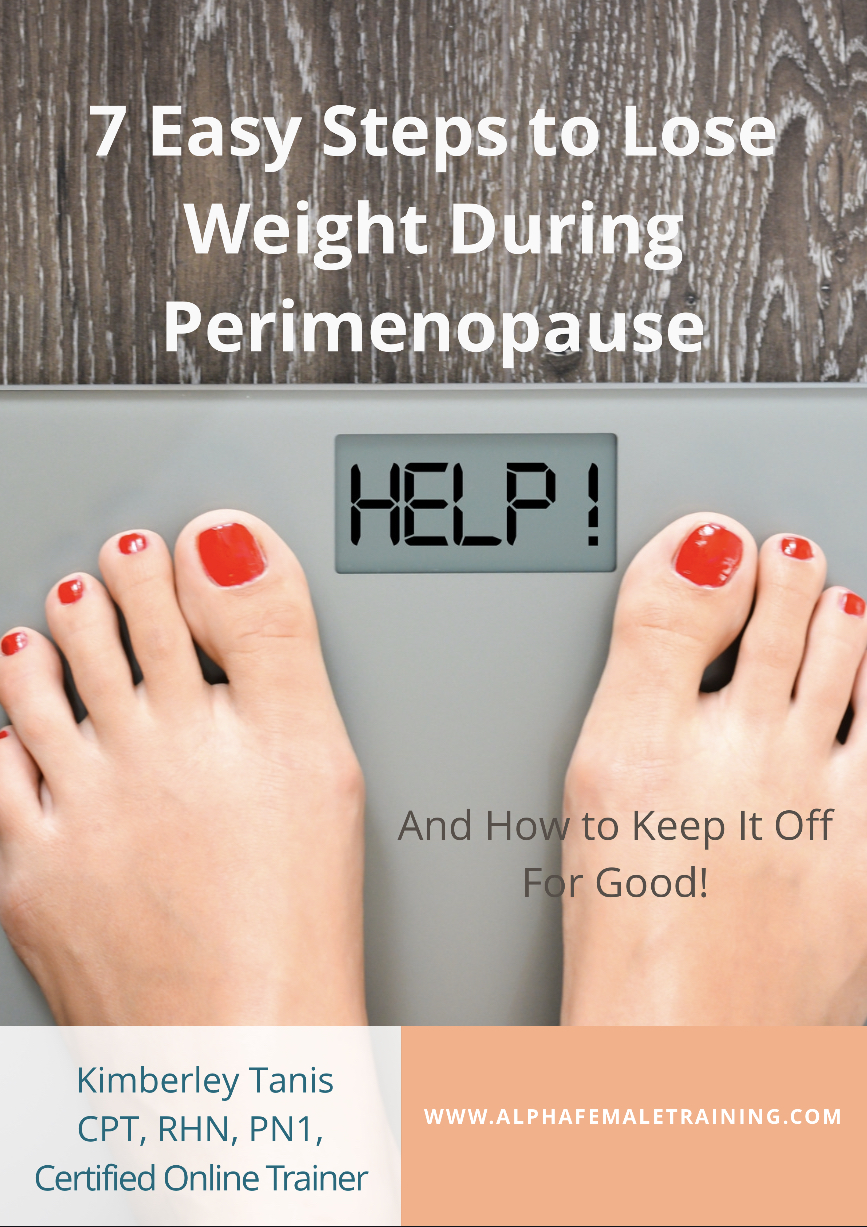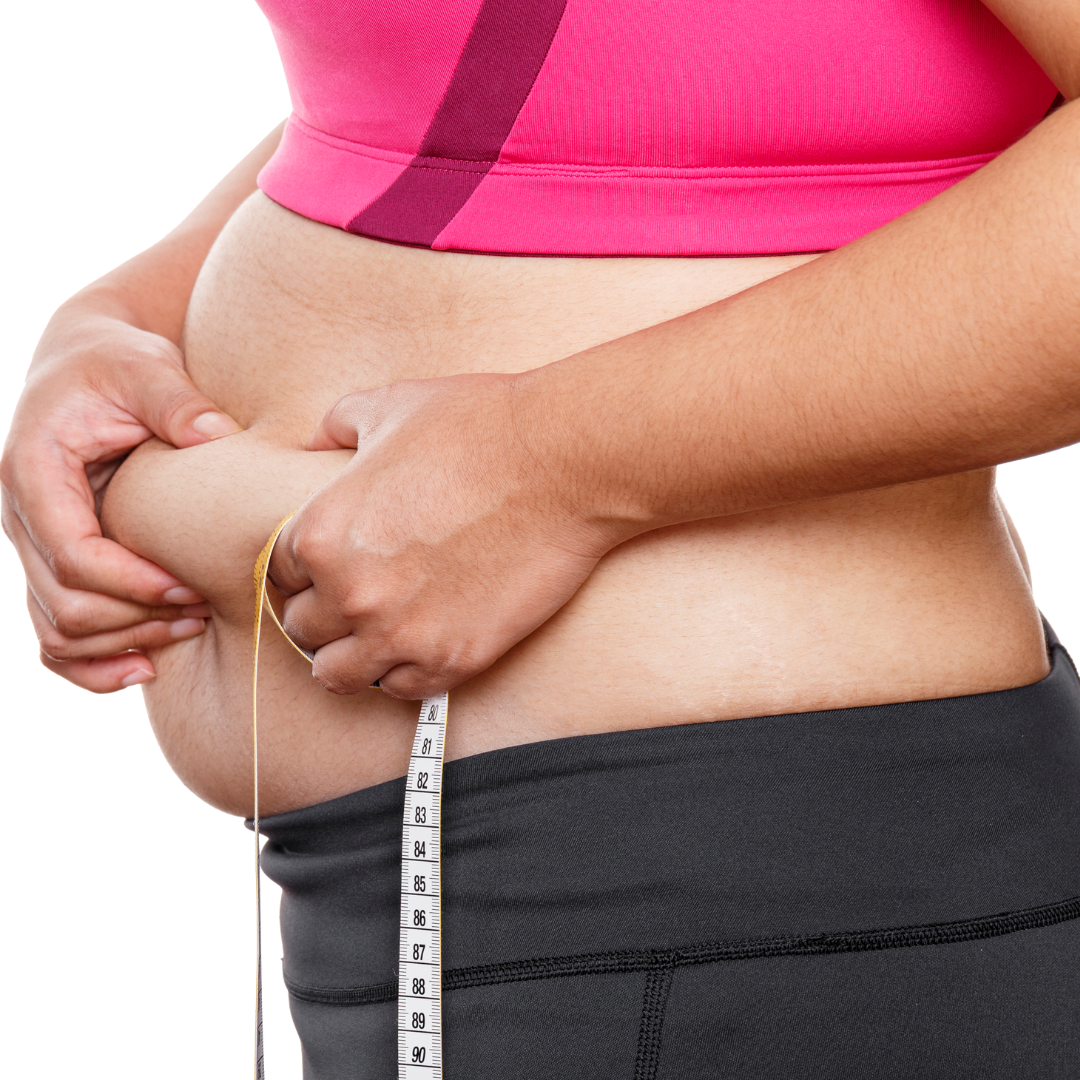Weight gain in perimenopause
Losing weight can be a challenge for many people, but for women over the age of 40, it can be especially difficult. Weight gain in perimenopause is common but maybe not for the reasons that you think.
As women reach this age, our metabolism naturally begins to slow down, making it more challenging to shed pounds and keep them off. In addition to a slower metabolism, hormonal changes and the stresses of everyday life can make it even more challenging for women to lose weight and maintain a healthy body composition.

Losing weight and fat loss over 40 is challenging - but not impossible.
Perimenopause is a period of transition leading up to menopause, which typically occurs in women in their 40s or early 50s. During this time, the body undergoes hormonal changes that can impact many aspects of health, including weight management.
One of the most common complaints during perimenopause is weight gain. Hormonal changes can impact the way the body stores fat, and a decrease in estrogen levels can also contribute to insulin resistance, making it easier to gain weight and harder to lose it.
Perimenopause can also be a time of increased stress and decreased physical activity, both of which can contribute to weight gain. Many women also report changes in their appetite and cravings during this time.
However, weight gain during perimenopause is not inevitable. By adopting healthy lifestyle habits, women can minimize the risk of gaining weight and support their overall health and well-being.
Eating a balanced diet rich in whole, nutrient-dense foods can help support weight management during perimenopause. Staying physically active can also help reduce the risk of weight gain and support overall health. Additionally, managing stress through practices like meditation or yoga can help mitigate the effects of hormonal changes on weight gain.

One of the biggest challenges for women experiencing weight gain in perimenopause is all of the hormonal changes. As women approach menopause, their hormone levels begin to fluctuate, causing weight gain and making it difficult to lose weight.
Hormonal imbalances can cause the body to store more fat, particularly in the abdominal area. These hormonal imbalances can also lead to insulin resistance, making it difficult for the body to regulate blood sugar levels, leading to weight gain and the accumulation of belly fat.
Stress may be making you fat!
In addition to hormonal changes, the stress of everyday life can also play a role in weight gain in perimenopause. Stress can trigger the release of the hormone cortisol, which can cause the body to store fat, particularly in the abdominal area. Stress can also cause overeating and disrupt sleep patterns, leading to weight gain and making it difficult to lose weight.

You may be less active and sitting too much
A sedentary lifestyle is another factor that can make it difficult for women over 40 to lose weight. As women get older, they are less active, which can lead to a decrease in muscle mass and an increase in fat. This decrease in muscle mass and increase in fat can further slow down the metabolism, making it even more challenging to lose weight.

Your diet and nutrition become more important than ever
Diet also plays a significant role in weight loss for women over 40. Many women tend to eat more processed and high-fat foods as they age, which can lead to weight gain. In addition, as women get older, they tend to have a more sedentary lifestyle, making it more challenging to burn the calories they consume.

If you're not actively trying to put on muscle then you are losing it!
Another challenge for women over 40 is the loss of lean muscle mass. As women approach menopause, their bodies start to lose muscle mass, which can cause the metabolism to slow down. This loss of muscle mass can also make it more difficult for women to lose weight and maintain a healthy body composition.
There are also a number of medical conditions that can make it difficult for women over 40 to lose weight. These conditions include hypothyroidism, polycystic ovary syndrome (PCOS), and insulin resistance. Women with these conditions may experience weight gain, making it more challenging to lose weight and maintain a healthy body composition.
Simple Strategies for Avoiding Weight Gain in Perimenopause
Despite these challenges, there are several strategies women over 40 can use to lose weight and maintain a healthy body composition. These strategies include:
- Eating a healthy and balanced diet: Women over 40 should focus on eating a diet that is rich in fruits, vegetables, whole grains, lean protein, and healthy fats. They should also limit their intake of processed and high-fat foods.
- Staying active: Women over 40 should aim to stay active and engage in regular physical activity, such as walking, cycling, or swimming. Strength training is also an excellent way to build muscle mass, boost the metabolism, and burn more calories.
- Getting enough sleep: Women over 40 should aim to get 7-9 hours of quality sleep each night. Lack of sleep can disrupt hormones, leading to weight gain and making it more challenging to lose weight.
- Managing stress: Women over 40 should engage in stress-management activities, such as yoga, meditation, or deep breathing, to help reduce cortisol levels and prevent weight gain.
Would you like some help with unwanted hormonal weight gain?Check out my Little Black Dress Project and lose 8-12 lbs in the next 6 weeks!
